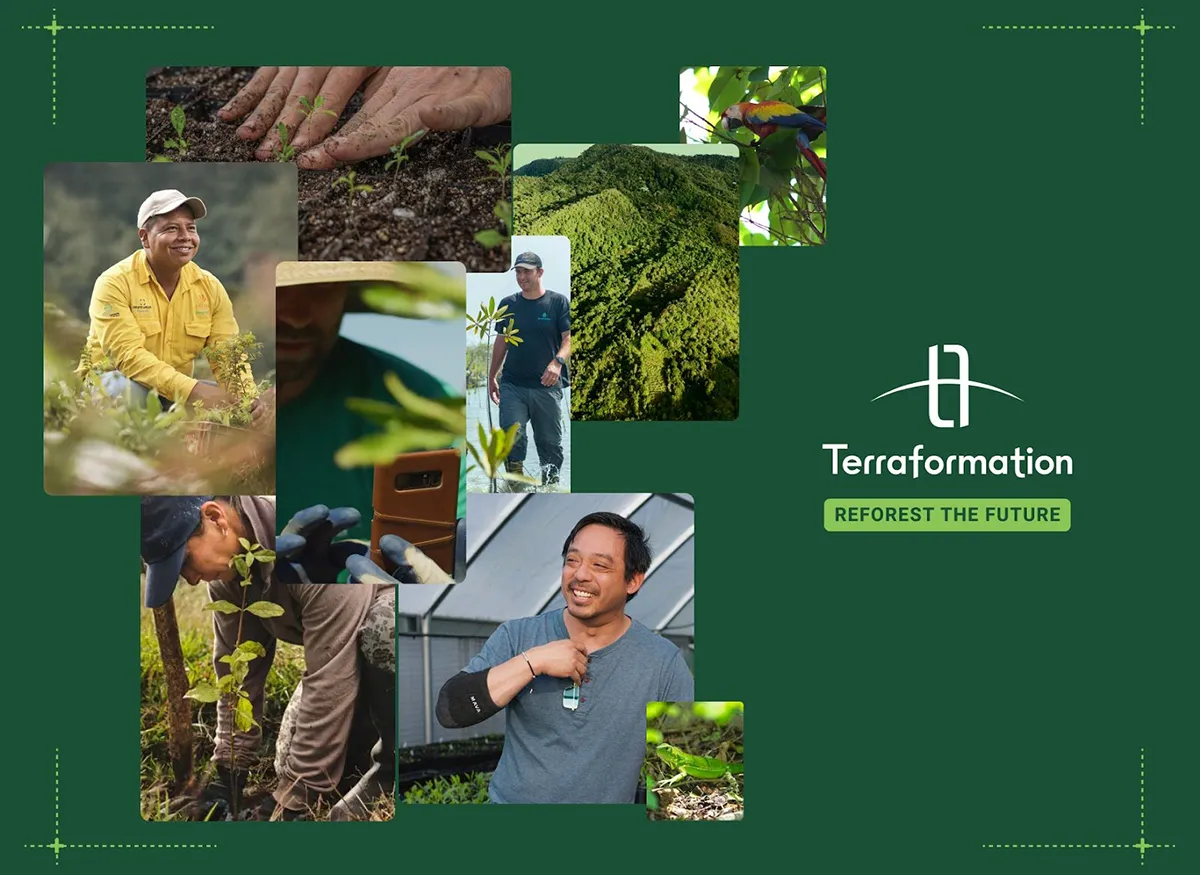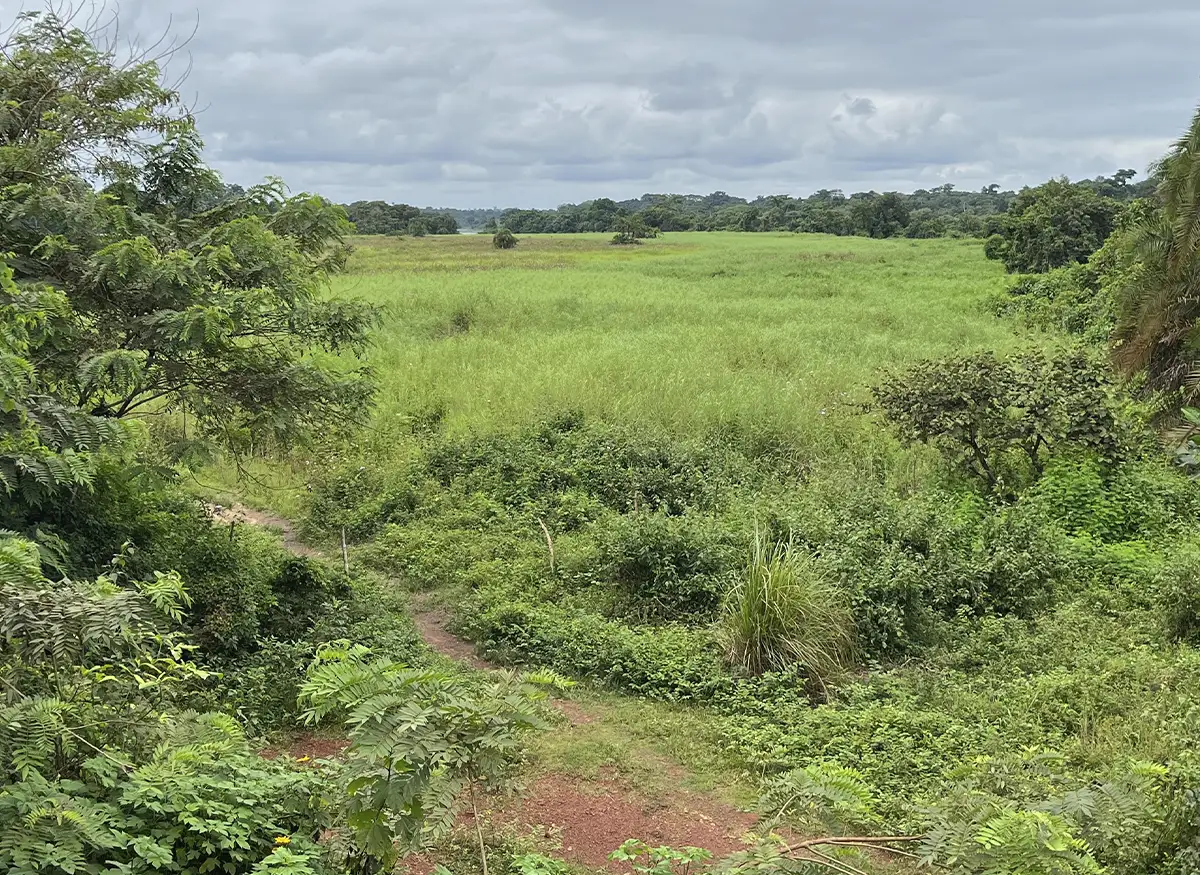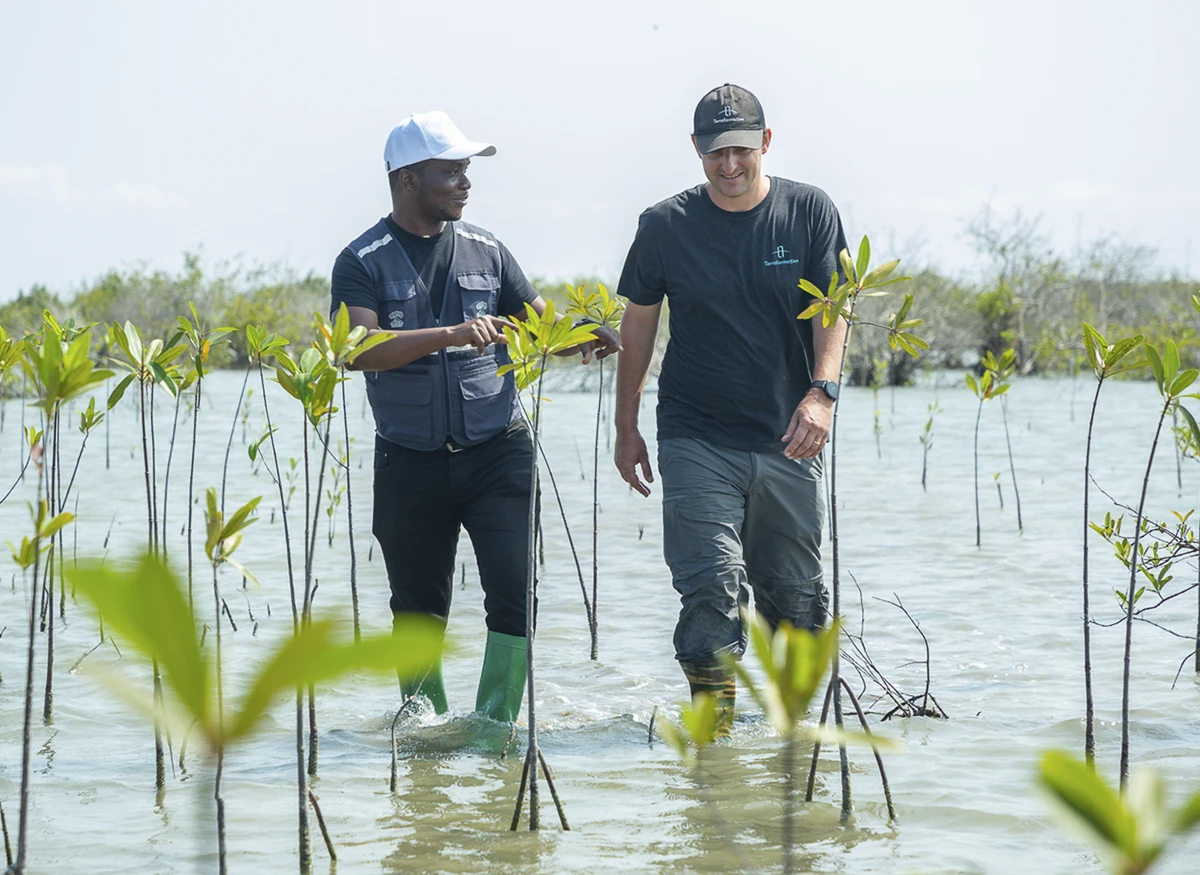
- The Seed to Forest Alliance brings together a mix of corporates, NGOs and philanthropists to tackle inadequate global seed supply and support native ecosystem restoration
- Terraformation and American Forests, Ecosystem Restoration Camps, One Tree Planted join as founding members; 1t.org US becomes advisory partner
- Launch comes as Terraformation publishes the first ever global review of existing seed banking infrastructure, crucial in solving shortages and driving reforestation
WAIMEA, HAWAII (SEPTEMBER 21, 2022) - Terraformation, the world’s first global forest carbon accelerator, today announces the launch of the Seed to Forest Alliance, with American Forests, Ecosystem Restoration Camps and One Tree Planted as founding members, as well as 1t.org US as an advisory partner.
The Alliance is committed to directly supporting biodiverse, native reforestation by providing a network to connect forestry teams with financial and technical support; contributing to research and thought leadership to accelerate reforestation; and collaborating to share results, best practices and expertise.
Launching at Climate Week NYC 2022, the Alliance will bring together corporates, NGOs and philanthropists to tackle the largest bottlenecks to reforestation at scale, focusing initially on inadequate seed supply. The need to focus on this area is underscored by new research published today by Terraformation which sheds light on the significant scale of upgrades required in the world’s existing seed banking infrastructure.
In recent years, global companies have committed to planting over 3.6 billion trees in their sustainability plans. At COP26, $7.2 billion of private investment was committed to protect and restore forests. However, these targets will not be achievable without investment and innovation in global seed banking infrastructure, which is the subject of the inaugural research from Terraformation.
Yishan Wong, founder and CEO of Terraformation, said: “Lasting climate solutions only come from collective action across diverse stakeholders. We’re incredibly excited to be working with organizations with the expertise, influence and determination to have a real impact on reforestation around the world. Native ecosystem restoration — with the right plants in the right places — is the most effective and immediately scalable carbon capture solution. Together, we can restore the future of our planet by conserving one of our most valuable resources at the heart of restoration: the seeds.”
Kevin O’Hara, Lead of 1t.org US at American Forests, added: “Time and time again we hear the real and immediate challenges in finding the seeds necessary to reach our ambitious national reforestation goals. 1t.org US is proud to support the work the Seed to Forest Alliance will do to help lift up public, private and NGO efforts to ramp up seed supply here in the US and around the world.”
New research reveals urgency for global seed bank network
Against this backdrop, Terraformation has published The Global Seed Bank Index, the first global review of seed banking infrastructure. In the report, Terraformation analyzed the number of seed banks needed to meet the “global restoration potential,” defined as the area of land in the world available for ecological restoration.
The research found that a global decentralized seed bank network would drastically improve restoration, preserve threatened plants, sustainably expand native seed supply systems and benefit local communities.
Key findings include:
- There are currently 410 seed banks across 96 countries that store native species, but more are needed in almost all countries. Establishing larger regional seed banks could help meet the need for seeds more efficiently.
- While the United States, Australia, Brazil and China have the most seed banks, they also need the most new seed banks to meet their restoration potential within 10 years.
- More than half of the world’s countries have no known seed banks.
- The restoration movement will also need to train hundreds of thousands of new seed collectors to preserve and restore threatened biodiversity.
- The tropics and biodiversity hotspots are the highest priority locations for additional seed banking capacity* given their high impact on biodiversity and climate regulation.

Global Seed Bank Index, Terraformation, 2022
Following the study, Terraformation is calling on:
- Businesses to invest in seed banks in their sustainability plans: seed banks allow corporates to invest in tangible products with measurable objectives and outcomes that directly support the UN’s Sustainable Development Goals.
- Governments to support seed banks as a natural resource management strategy: government support at any level can help create a well-connected and scalable decentralized network with locally adapted, resilient seeds.
- Local restoration organizations to prioritize seed banking: people already doing restoration on the ground are ideal candidates to add seed banking to their restoration toolkits and scale up their work with higher efficiency.
Commenting on seed banks, Yishan Wong added: “Public conversation around restoration focuses on tree-planting, but often forgets the forest, and the seed. We urgently need to improve access to solutions for long-term, resilient restoration by not only deploying thousands of new seed banks to solve seed supply shortages, but also solutions to other bottlenecks like early-stage capital. Scalable reforestation solutions are essential in supporting the United Nations Decade on Ecosystem Restoration and the planting commitments of hundreds of countries and organizations.”
Terraformation will host a public panel on September 22 at Climate Week to discuss seed supply as well as other core bottlenecks to achieving the 1 trillion tree global restoration goal. Speakers will include Terraformation VP of Growth Yee Lee, Kevin O’Hara from American Forests, Lindsey Prowse from the World Economic Forum, Shyla Raghav from TIME and Tahera Hamdani from Regenerative Resources.
The Seed to Forest Alliance
Terraformation and its Alliance members are committed to scaling solutions to the largest bottlenecks to native forest restoration. Five of the largest bottlenecks are freshwater shortages, inadequate seed supplies, a lack of on-the-ground technical expertise, data accessibility, and insufficient financing. The Alliance will first focus on seed supply, including connecting forestry groups with the funding, technology and training to establish local seed supplies and enable biodiverse reforestation at scale.
The Alliance is underpinned by three guiding principles:
- Biodiversity and ecological resilience: the Alliance will only support native, biodiverse forest restoration in accordance with the IUCN Global Standard for Nature-based Solutions. It does not support monocultures or destructive forestry practices.
- Community: the Alliance believes communities are at the heart of resilient and just land restoration. It supports forest restoration projects in alignment with UN Sustainable Development Goals, especially with regard to gender equality, decent work, human health and well-being, and elimination of poverty.
- Measurable impact and transparency: the Alliance prioritizes impact, and as such will set quantifiable goals and transparently report progress.
About Terraformation
Terraformation is dedicated to restoring the world's forests to stabilize our climate, revive ecosystems, and build thriving communities.
The company operates as a forest carbon accelerator, supporting early-stage forestry teams to launch, build, and scale biodiverse reforestation projects. In addition to producing high-quality, verified carbon credits, these projects generate complementary sustainable revenue streams to support local economies.
Terraformation’s current partner network spans five continents and includes diverse landowners and organizations. It was founded in 2020 by Yishan Wong, former CEO of Reddit.
About Alliance Members
1t.org is a platform for the trillion trees community; part of the World Economic Forum’s work to accelerate nature-based solutions in support of the UN Decade on Ecosystem Restoration, supported by funding from Marc and Lynne Benioff.
Founded in 1875, American Forests is a national nonprofit conservation organization and its mission is to create healthy and resilient forests, from cities to wilderness, that deliver essential benefits for climate, people, water and wildlife.
Ecosystem Restoration Camps is a global movement repairing the earth, from the ground up. The movement supports more than 50 camps in 27 countries, where ordinary people are taking on the task of restoration to increase local biodiversity, restore water-systems, and improve food-security & local livelihoods.
Methodology
The research team investigated where and how many seed banks are needed to meet the global restoration potential (RP), defined as the total land area available for ecological restoration. At the country level, it combined the area of RP and the number of existing seed banks that store native species to assess gaps in seed bank capacity. Using published literature on highly variable factors of seed germination rates, plant densities, and survival rates, it estimated how much RP a small restoration seed bank can support. Finally, the researchers calculated the number of seed banks needed under different theoretical “need for seeds” scenarios to account for the high variation in the number of seeds required to meet global RP goals.
The Global Seed Bank Index is available to download here.




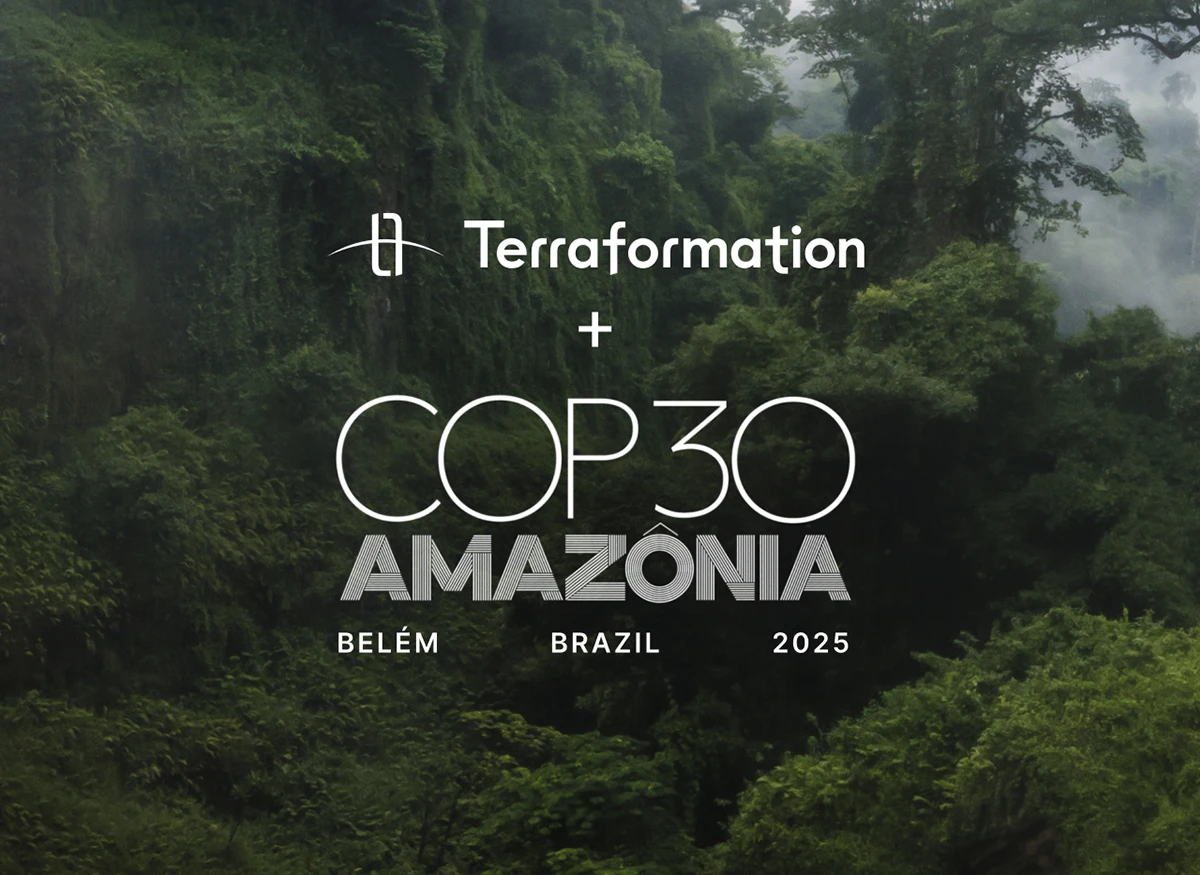
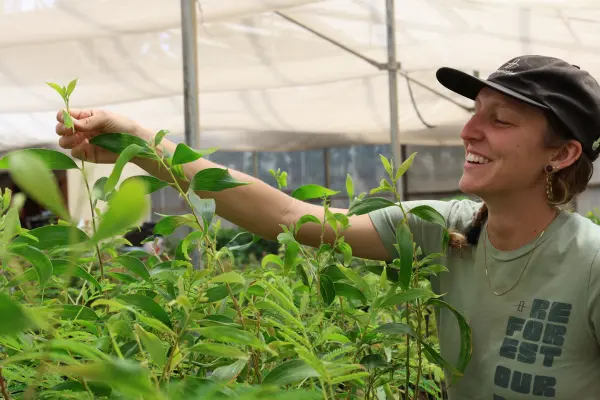





.png)

